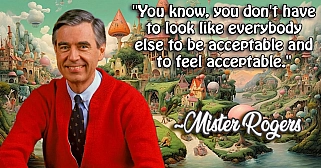Marilyn Monroe: Icon of Hollywood Glamour and Tragic Beauty

Marilyn Monroe
Early Life and Childhood
Marilyn Monroe, born Norma Jeane Mortenson on June 1, 1926, in Los Angeles, California, is one of the most iconic figures in Hollywood history. Her early life was marked by hardship and instability. Her mother, Gladys Pearl Baker, struggled with mental health issues and was unable to care for her, leading Norma Jeane to spend much of her childhood in foster homes and an orphanage. Despite these challenges, she found solace in the movies and dreamed of becoming an actress.

The Path to Stardom
Norma Jeane's path to stardom began in the early 1940s when she was discovered by a photographer while working at a munitions factory during World War II. This chance encounter led to a successful modeling career, and she soon caught the attention of Hollywood studios. In 1946, she signed her first contract with 20th Century Fox and adopted the stage name Marilyn Monroe.
Marilyn’s early years in Hollywood were marked by small roles in B-movies and a struggle to break into the industry. Her persistence paid off when she landed a role in "All About Eve" (1950), where her talent and screen presence started to attract attention. Her breakthrough came with the 1953 film "Niagara," which established her as a major star.
Rise to Fame
The 1950s saw Marilyn Monroe rise to unparalleled fame. She starred in a string of successful films, including "Gentlemen Prefer Blondes" (1953), "How to Marry a Millionaire" (1953), and "The Seven Year Itch" (1955), where the iconic image of her standing over a subway grate with her white dress billowing up was immortalized. Her performances showcased her comedic timing, charm, and undeniable star quality.

Marilyn's persona as the "blonde bombshell" made her a sex symbol, but she aspired to be recognized for her acting talent. To refine her skills, she studied at the Actors Studio in New York under Lee Strasberg, which led to more nuanced performances in films like "Bus Stop" (1956) and "The Prince and the Showgirl" (1957).
Personal Struggles
Despite her professional success, Marilyn’s personal life was fraught with difficulties. She married three times: to James Dougherty, a policeman, in 1942; to baseball legend Joe DiMaggio in 1954; and to playwright Arthur Miller in 1956. Each marriage ended in divorce, with her union with Miller being particularly turbulent. Her relationships were often marred by her insecurities and the pressures of her fame.
Marilyn also struggled with mental health issues, including anxiety and depression, which were exacerbated by her substance abuse. The demands of her career, coupled with her personal challenges, took a toll on her health and well-being.
Later Career and Legacy
In the early 1960s, Marilyn’s career began to falter due to her erratic behavior and frequent absences from film sets. However, she delivered a memorable performance in "The Misfits" (1961), written by her then-husband Arthur Miller. This film, which also starred Clark Gable and Montgomery Clift, is often regarded as one of her best.
Marilyn’s life came to a tragic end on August 5, 1962, when she was found dead in her home from an apparent overdose of barbiturates. She was only 36 years old. Her death was ruled a probable suicide, but it has since been the subject of numerous conspiracy theories.
Cultural Impact
Marilyn Monroe's impact on popular culture is immeasurable. She remains a symbol of glamour, beauty, and sensuality. Her image has been endlessly reproduced, and she has inspired countless books, films, and songs. Despite the struggles she faced, Marilyn's legacy endures as a testament to her talent, resilience, and the indelible mark she left on Hollywood.
Her influence extends beyond the entertainment industry; she has become a cultural icon representing the complexities of fame and the pressures faced by women in the spotlight. Marilyn's story is one of both triumph and tragedy, encapsulating the highs and lows of a life lived in the public eye.


